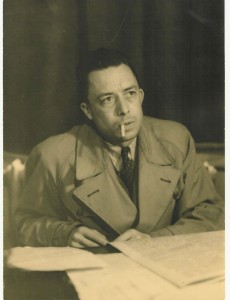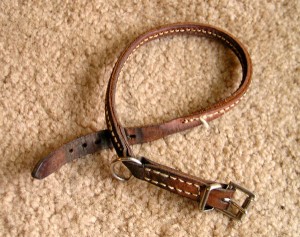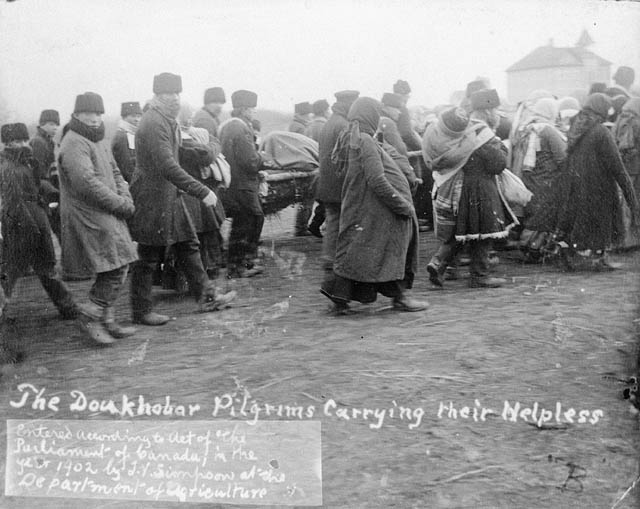 aNewDomain — I’m a therapist, so I know about feeling helpless. Every therapist, and especially existential ones like me, must eventually come to terms with this feeling that we are less than half of an equation. In the end, we cannot really help our clients — or society, or our families, or even ourselves — very much.
aNewDomain — I’m a therapist, so I know about feeling helpless. Every therapist, and especially existential ones like me, must eventually come to terms with this feeling that we are less than half of an equation. In the end, we cannot really help our clients — or society, or our families, or even ourselves — very much.
The very best we therapists can do is to be with someone as they bravely encounter their own essential helplessness. Freedom and responsibility. Death. And it isn’t only therapists who must exist within that feeling of helplessness.
We all have to encounter our essential helplessness. You can’t protect your children. Buying net-free tuna won’t save the dolphins. There’s no way to stop pine beetles from eating the national forest. You’re going to die. Everyone is going to die.
When your kids get hurt, you want to take their pain away. But you can’t. When they fail, you want to go to their school, grab the coach by the collar, force the guy to change his mind. Make the teacher raise their grade.
You can’t do any of that. You can’t go there any more th an you can help your wife with the personality problems she has at work, or help your mother in law with corporate downsizing. All you can do is listen, be patient and maybe take their side.
an you can help your wife with the personality problems she has at work, or help your mother in law with corporate downsizing. All you can do is listen, be patient and maybe take their side.
Your teenaged son gets his first romantic breakup. His poor dear heart is broken. You want to offer comfort: there are more fish in the sea, it will all work out for the best, she didn’t deserve you.
Therapy can be like this: We can attempt to mend people’s broken hearts. But that doesn’t really work. They have to go through it, learn from it. Learn to be bigger than pain, learn that a broken heart is worth it.
In life, you watch people hurt, suffer. In therapy, you do the same. In both cases, you feel like you should have the power to intercede. Wisdom, age, strength, authority.
It never works out like that and, if it did, wouldn’t you be robbing people of something essential?
Our cat hardly eats any more. We’ve taken her off all her medical treatments because they can’t save her, and they cause her illness. When the dog passed last year, my son – 10 years old – was there in the room. We gave the dog pats and comfort as he went to sleep, stopped breathing, died. My heart broke for the dog, for myself, for my wife, most of all for my son.
This year – this week, next week, maybe the week after – the cat will die, too. She’s 17. It has been a goodish kind of life. And this choice is with us amidst the grief and concern: Shall we take this boy in with us to the vet, again, to watch another treasured companion pass away?
I don’t know. I just don’t. I can’t protect him from this and I want to. All I can do is ask him: What do you want? Do you want to be in the room again? Is it too much for you or can you find meaning in it?
***
He says he wants to be there, to say goodbye, to bear witness.
Kids, they like to have a physical artifact of those who have gone ahead. I wore my Dad’s wedding ring for 10 years, gave it to a sibling later. The kid, he has Scooby’s collar. For a while he kept it close, always jingling. Now he picks it up when he’s sad, or needs to remember. The cat won’t leave much behind, maybe a plastic ball or something, but he can have it.
“I feel helpless,” he says.
“Good, maybe that’s good.”
“Why?”
“Because, my friend, you are helpless. We all are. I’m just as helpless. See, I want to help you with your feelings of inadequacy, but I can’t. Because you are, ultimately, as inadequate as I am.”
“So what should I do? I bet your clients ask you that. What do you say?”
Oh, damn.
For aNewDomain, I’m Jason Dias.
Cover image: by Simpson, Thomas Veitch [Public domain], via Wikimedia Commons; image two: by Ebyabe (Own work) [CC BY-SA 3.0, via Wikimedia Commons; image three: Albert Camus by Robert Edwards, Licensed under CC BY-SA 3.0 via Wikimedia Commons; image four: by Ebyabe (Own work) [CC BY-SA 3.0; image five: “BuckleCollar wb” by Elf at en.wikipedia – Transferred from en.wikipedia to Commons by User:JohnnyMrNinja using CommonsHelper. Licensed under CC BY-SA 3.0 via Wikimedia Commons – )













